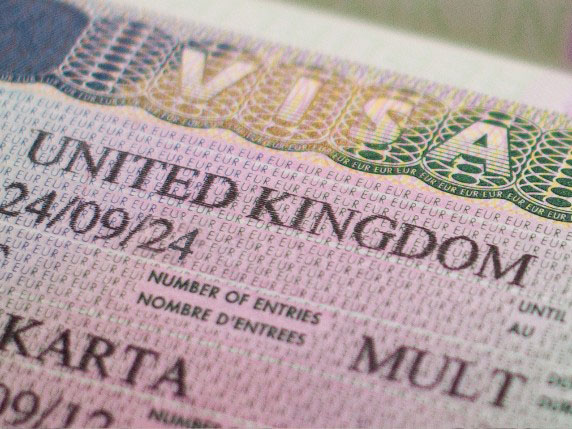As we head closer and closer to ‘exit day’ in just a few weeks, our February legal updates have a necessarily ‘no-deal’ flavour throughout our key areas of corporate and commercial data protection, intellectual property and employment law. Government departments and other bodies are publishing more guidance and legislation approaching Brexit that may affect our clients.
Corporate and Commercial
- Brexit and Companies House registrations — Companies House has published guidance on changes to company registrations if the UK leaves the EU without a deal. It affects companies who are European entities formed under EU law, UK companies with an EEA corporate officer, UK companies involved in cross-border mergers, and EEA companies.
- Brexit and Companies House forms — Companies House has published guidance on the Companies House forms that will change if the UK leaves the EU without a deal.
- Brexit and trade agreements that won’t have transitioned by exit date — On 21 February, the Department for International Trade published a guidance document setting out the status of the trade agreements that may not be transitioned by exit day.
- Brexit and the consumer sector — The Department for Business, Energy and Industrial Strategy (BEIS) has published guidance, The consumer goods sector and preparing for EU Exit, to help the consumer sector prepare for a no-deal Brexit.
- Brexit and no-deal customs processes — On 6 February, HMRC published the fourth version of its guidance on customs processes and procedures likely to apply if the UK leaves the EU without a deal.
- New guides for goods regulations from BEIS — For businesses who need to understand the potential impact of a no-deal Brexit on their products and supply chains in various areas of goods regulation, BEIS published guidance on 15 February.
- Draft legislation on contractual and non-contractual obligation — On 13 February 2019, the draft Law Applicable to Contractual Obligations and Non-Contractual Obligations (Amendment etc.) (EU Exit) Regulations 2019 were laid before Parliament. They have been approved by a resolution of each House of Parliament.
Data Protection
- New draft data protection legislation — The draft Data Protection, Privacy and Electronic Communications (Amendments etc.) (EU Exit) (No 2) Regulations 2019 have been laid for sifting. They’re intended to ensure that personal data transferred from the UK to Privacy Shield organisations in the US will continue to be protected under the Privacy Shield framework should the UK leave the EU without a deal.
- BEIS guidance on personal data — BEIS has published guidance for UK businesses on using personal data after Brexit, in the event of a deal and if there is no deal. A deal will result in little change to current standards during the implementation period. No deal will mean businesses may need to ensure safeguards or derogations to allow the transfer of information from the EU to the UK.
- EDPB guidance on data transfer — The European Data Protection Board (EDPB) has published an information note on data transfers under the GDPR in the event of a no deal Brexit setting out five steps organisations should take. It describes various data transfer instruments including standard contractual clauses, binding corporate rules, certification mechanisms, derogations and a number of instruments available exclusively for public bodies.
Intellectual Property
- BEIS guidance on general IP — BEIS has released guidance on intellectual property after Brexit to help business both in the event of a deal, and a no-deal, Brexit.
- Draft legislation on trade marks — On 31 January, the government published the draft Designs and International Trade Marks (Amendment etc.) (EU Exit) Regulations 2019 (31 January 2019) which preserves intellectual property rights of businesses who hold unitary EU rights. It creates new UK rights, held independently from the EU rights from which they derive. This legislation is in preparation for a no deal scenario and would need amendment pending any withdrawal deal.
- Numbering system for comparable trade marks (EU) — The UK Intellectual Property Office issued a notice on 21 February detailing plans to number the new comparable trade marks (EU) that will arise on 29 March in the event that the UK leaves the EU without a deal, under the Trade Marks (Amendment etc.) (EU Exit) Regulations 2018.
- Intellectual property enforcement at the border — The Draft Customs (Enforcement of Intellectual Property Rights) (Amendment) (EU Exit) Regulations 2019, 1 February 2019 aim to create a new UK scheme for the enforcement of intellectual property rights at the UK border in the event that there is no withdrawal agreement between the UK and the EU.
Employment law
- Closing the gender pay gap — The Government Equalities Office released two sets of guidance for employers, Eight ways to understand your gender pay gap and Four steps to developing a gender pay gap action plan, helping them to understand reasons for their gender pay gap and how to address it. This comes after paygaps.com found that more than 30% of gender pay gap reports submitted in 2019, submitted by more than 1,000 organisations, included errors. In a separate analysis by the BBC, more than a quarter of those reports submitted this year also show a wider gap than last year.
- Hermes creates ‘self-employed plus’ status for couriers — On the ongoing question of employment status in the gig economy, a deal between delivery company Hermes and the GMB union has been reached via a collective bargaining agreement, allowing workers who opt-in to receive 28 days paid holiday.
- Acas guidance on age discrimination — Acas publishes new guidancefor employers, using case studies to help identify age discrimination in both direct and indirect forms, as well as harassment and victimisation, and actions employers can take to prevent and correct age discrimination at all employment stages.
- NDAs in discrimination cases — Following the launch of an inquiry into the use of NDAs in harassment and discrimination cases, the Women and Equalities Commission recently head evidence form the BBC and civil service, who both deny that NDAs are in regular use to hide details of settlements in discrimination cases.






